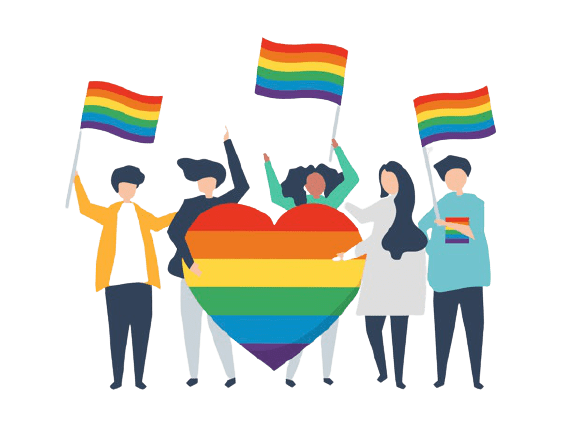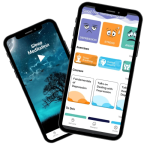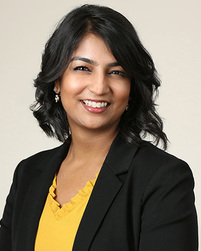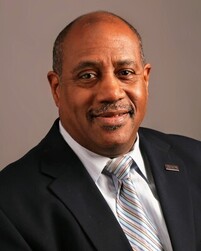Online LGBTQ Counseling | Best Therapist For LGBTQ Counseling
- Setup a free & confidential chat on your sexuality.
- Unlimited help through our self-care app.
- Live Video or Chat sessions with top LGBTQ Counselors.
Begin Therapy
Consult online with best Therapist
Get The Best Help For Sexuality Issues
TherapyMantra is here to help you on your path to exploring your sexuality. We match you with the best LGBTQ Counselors available 24/7 via video call or messaging.
Match with Top LGBTQ Counselors
We assign the best counselors experienced in sexuality issues based on your needs.
Affordable and Effective
Our online sessions are 90% less expensive than in-person therapy, available 24/7.
Self-Care
We offer ongoing support through self-care tools, depression help videos, chat groups, meditations, breathing exercises, and other resources.

How it works?
You are matched with a LGBTQ Counselor based on your needs and preferences. You get a secure “therapy room” where you can communicate with your counselor via chat or phone. You can write or talk about your issues & ask questions to deal with LGBTQ.

Register for LGBTQ Counseling
Simply complete a 5-minute online form to tell us about your sexality issues

Consult with your LGBTQ Counselors
We connect you with LGBTQ Counselors who are available 24/7 based on your preferences and needs.

Connect to Our App
Apart from Video / chat sessions, our app offers self-care tools, videos and meditations to help you deal with your sexual issues.
Best LGBTQ Counselors
Positive conversations, exercises, and meditations are used by TherapyMantra psychologists to help you deal with depression. Our LGBTQ Counselors outperform traditional counseling as you get matched from a pool of 500+ LGBTQ Counselors, who offer 24/7 unrestricted private chat.








What is LGBTQ?
LGBTQ is an acronym that stands for lesbian, gay, bisexual, transgender, and queer, or questioning. It is a term that encompasses a wide range of sexual orientations and gender identities.
People who identify as LGBTQ experience discrimination and exclusion from the mainstream world. This can be due to their sexual orientation or gender identity, which differs from the majority of people.
Despite the challenges, the LGBTQ community has made significant progress in recent years. In 2015, the US Supreme Court legalized same-sex marriage nationwide. This was a major victory for the LGBTQ+ community and helped to break down barriers for queer people across the globe.
Types of LGBTQ
The acronym LGBTQ is often used to represent the community of lesbian, gay, bisexual, transgender, queer, and other related sexual orientations. The different types of sexuality within the LGBTQ group includes:
L – Lesbian
The word lesbian is used to refer to homosexual women. Many people think that lesbians are only those who have short hair and dress like men, but this is not the case. Lesbians can be feminine, masculine, or androgynous.
G – Gay
The word gay is used to refer to homosexual men. Gay people can be of any gender identity.
B – Bisexual
People who are bisexual romantically, emotionally, and sexually attracted to both men and women.
T – Transgender/Trans
The word transgender is used for people whose gender identity does not match the sex they were assigned at birth. Trans people can be of any sexual orientation. They may identify as female-to-male (FTM), male-to-female (MTF), nonbinary, or another gender identity.
Q – Queer
Queer is an umbrella term used for anyone who doesn’t fit into the traditional categories of sexual orientation and gender identity. This can include people who are lesbian, gay, bisexual, transgender, androgynous, or anyone else whose identity doesn’t fit into a box.
+ – Other/Allies
The ‘+’ in LGBTQ includes all other variations of gender and sexual orientation that are not included in the original acronym. This is often used to include people who identify as queer, questioning, intersex, pansexual, polysexual, asexual, and demisexual.
People who are not LGBTQ can also be allies to the community. An ally is someone who supports and respects LGBTQ people, their rights, and their lifestyles. Anyone can be an ally, simply by showing support for the LGBTQ community.
Issues Faced By LGBTQ Community
1. Suicide: LGBTQ youth are four times more likely to attempt suicide as opposed to heterosexual peers.
- Bullying: Over half of LGBT students report being bullied and one in three transgender youth report having been physically assaulted at school.
- Violence: One study found that 47% of LGBTQ people had been a victim of violent hate crime.
- Homelessness: LGBTQ youth represent up to 40% of the homeless youth population.
- Employment discrimination: A study of transgender people found that 78% had experienced employment discrimination.
- Healthcare: LGBTQ people are twice as likely to report experiencing healthcare discrimination.
- Relationship recognition: Only 37 countries currently recognize same-sex relationships, and in many countries, homosexual activity is criminalized.
- Parenting/adoption: Homosexuality is criminalized in 74 countries, and only 23 countries recognize same-sex marriage.
9. Mental health: LGBTQ people are 3 times more likely to experience mental health issues than heterosexual people.
Therapy options for LGBTQ Issues
There are several different therapeutic modalities that therapists use to help clients struggling with LGBTQ issues. These include:
Cognitive Behavioral Therapy
It is a short-term, goal-oriented therapeutic modality that helps clients identify and change dysfunctional thoughts and behaviors. CBT assists clients in becoming aware of distorted thinking patterns and critical inner voices that contribute to feelings of hopelessness, despair, and low self-worth.
Dialectical Behavioral Therapy
It is a longer-term therapeutic approach that helps the LGBTQ community learn to accept themselves and deal with relational, emotional, and family issues. DBT assists the client in recognizing patterns of destructive thoughts (e.g., extreme feelings of guilt or shame) that contribute to suicidal behaviors or self-harm.
Family therapy
It can be beneficial for LGBTQ teens who are struggling with issues such as acceptance from family members, coming out, and reconciling differences between personal and family values. Family therapy can also help families acknowledge their own beliefs, fears, and biases so they can have more open communication with each other.
Group therapy
It is a modality that can be utilized by LGBTQ teens to foster feelings of support, acceptance, belonging, empowerment, and self-acceptance. Group therapy can be particularly helpful for clients who are struggling with depression or suicidal thoughts/behaviors.
Diversity Therapy
It is a therapeutic approach that incorporates an understanding of the unique issues facing the LGBTQ community to promote individual, relational, and social change.
How to find a LGBTQ Counselor?
TherapyMantra can help you find a LGBTQ Counselor near you. We have over 500+ therapists listed on our therapist directory. You can follow the following steps to find a good LGBTQ Counselor:
- First, ask your family doctor or anyone else you are seeing for a referral for LGBTQ Counseling.
- The next thing you’ll want to do is ask your friends and loved ones for referrals.
- The next thing you’ll want to do is look online. There are many websites that help people find therapists in their area who can treat things like these.
10,000+ Happy & Healed patients

“TherapyMantra gave me the space of trust and comfort to openly discuss about my sexual orientation. My counselor gave me the courage to come out and talk about my sexual preferences confidently.”
Peter,
1 year on TherapyMantra
FAQs
There are many challenges that LGBTQ people face everyday. Some of these challenges include discrimination and violence, lack of legal protection, and exclusion from certain aspects of society.
Yes, children can be LGBTQ. This is because being LGBTQ has nothing to do with your age or how you were raised. It’s a part of who you are and it doesn’t go away as you age or as you’re exposed more to society.
Coming out is the process of revealing your LGBTQ identity to other people. It can be a difficult process, but it can also be very rewarding. It’s a way of taking control of your life and your story, and it can help you feel more connected to other LGBTQ people.
If you’re not sure whether or not you’re LGBTQ, that’s okay. It can take time to figure it out. You may feel confused, scared, excited, happy, and/or sad when you’re trying to figure this out. These feelings are very normal and they’re a part of figuring out who you are.
You may also feel worried about what other people might think if they find out that you’re LGBTQ. However, it’s important to remember that the only thing that matters is how you feel and not what everyone else thinks. You can’t help who you’re attracted to or who you fall in love with, and no one has the right to judge you for that.

Take a free emotional assessment today! Know how you feel.
Do you think you might be suffering from depression, anxiety, stress, or any other issue? Take our free emotional assessment today and find out! This quick and easy test will help you to understand more about how you’re feeling, and give you some insight into what might be going on.

